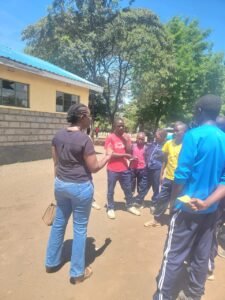
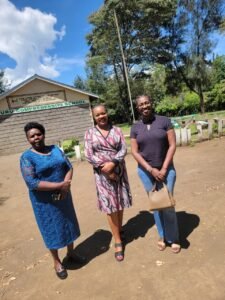
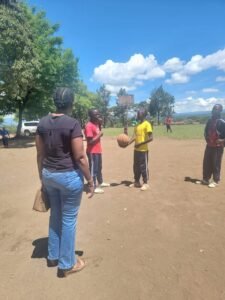
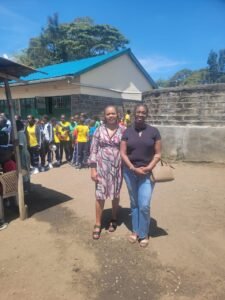
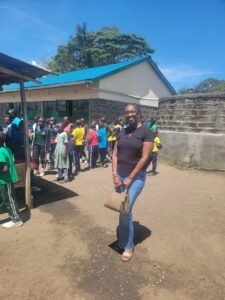
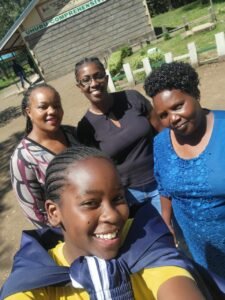
By Julie Wanjiru Chege
CEO, Ashley’s Events & Ashley’s Events Institute
Chairlady, Centre for Social Responsibility and Accountability
Tucked away in the heart of Nakuru Town, Uhuru Primary School serves as a quiet yet powerful symbol of perseverance, hope, and resilience. With a student population of over 800 boys and girls, many of whom come from severely marginalized communities, this public primary school is more than just a center of education — it is a lifeline for countless children yearning for a better future.
During my recent visit to the school, I was struck by more than just the numbers. I had the privilege of meeting the head teacher, Madam Norah Chumba, a leader whose impact on this institution since 2018 cannot be overstated. Under her stewardship, the school’s mean academic score has risen from a worrying 209 to an impressive 250+. But her leadership is not only seen in numbers — it’s reflected in the transformed school environment, the dignity she extends to every child, and the commitment to never turn away a learner, no matter how dire their background.
I happened to arrive during the lunch hour — a time that revealed both the strengths and struggles of the school. It was heartwarming to see smiling children in their uniforms, some a bit torn but still worn with pride. I watched as Grade 9 students played basketball, patiently waiting for the younger ones to eat before lining up for their turn. But even in this joy, there was a quiet heartbreak.
The lunch program at Uhuru Primary is a fragile system held together by goodwill, sacrifice, and prayers. Many of these children come to school not just for education, but in the hope of getting their only meal for the day. The sight of some eating while others quietly sit aside due to lack of lunch fees was emotionally overwhelming. Madam Chumba shared with me that she never sends away a child — yet this open-door policy creates daily challenges, especially for the school’s feeding program.
Her deputy, Madam Mary Moses, spoke to me with tears in her eyes. “You can imagine the emotional torture I go through when I know a child has come here for just one meal and I have to tell them there is none,” she said. “Sometimes I can’t even eat my own lunch—I give it to a student. But how sustainable is that?”
A meal at Uhuru Primary costs only 30 to 50 shillings a day — less than what many of us spend on snacks. Just 800 shillings can feed a child for a whole month. It’s a small price to pay for the dignity and hope that one plate of food can give.
Despite these heartbreaking stories, what I witnessed at the school filled me with hope. The children were vibrant, eager to learn, and joyful — their laughter echoing through the playgrounds, their resilience a stark reminder of the human spirit’s strength.
We can make a difference. We must make a difference. This is not just a call for help — it is a call for partnership, for community, for shared humanity.
Are you one of those kind-hearted individuals who can help? Could you become a part of the Uhuru Primary family by purchasing just one meal card for a child? For only 800 shillings per month, you can ensure a child receives a daily meal. All contributions are accounted for and go directly to the school through the official paybill
Paybill Number: 4103705
Account Name: Uhuru Primary Feeding Program
Let’s give these children not just a meal, but a chance — a chance to learn, to grow, and to dream without the shadow of hunger.
Together, we can ensure that no child at Uhuru Primary ever sits out lunchtime again.